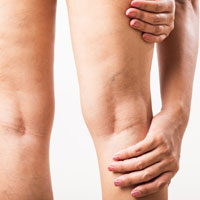 Understanding Lipedema
Understanding LipedemaLipedema is a chronic inflammatory condition caused by an abnormal accumulation of fat cells. This condition predominantly affects women and can lead to significant discomfort, mobility issues, and emotional distress. Despite its prevalence, patients and physicians often overlook or misdiagnose the condition.
While they may seem similar, they are very distinct conditions. Lipedema involves the abnormal buildup of fat cells, while lymphedema results from an abnormal accumulation of lymphatic fluid. Lipedema typically affects both legs symmetrically, whereas lymphedema often starts in one limb and can include the feet. Accurate diagnosis is essential to determine the appropriate treatment plan.
The condition presents several distinctive signs and symptoms, including:
It can be painful due to the increased pressure on surrounding tissues, including nerves and blood vessels. The condition often leads to tenderness and sensitivity in the affected areas. Additionally, inflammation and compromised blood flow can contribute to your discomfort and pain.
Diagnosis involves a comprehensive physical examination and medical history review. Our key diagnostic steps include:
While the exact cause is unknown, there are several identified risk factors including:
Treatment of Lipedema requires a multidisciplinary approach that may include:
It does not go away without treatment. In fact, the condition tends to worsen over time if left alone. For that reason, early diagnosis and intervention are crucial in managing symptoms and preventing progression.
Currently, researchers have not found a cure. However, effective treatment can significantly reduce symptoms, improve quality of life, and prevent further complications.
While we do not manage all aspects of Lipedema at Southlake Vein Care, we are able to recognize the signs and symptoms, make the diagnosis, and start our patients on the path of managing their condition.
If you have lipedema, we can help. Request a consultation online or call us at 972-378-5347.
In most cases, health insurance and Medicare will cover treatment of vein procedures, assuming the patient meets the criteria for treatment. Out of pocket expense depends on many factors, such as deductible met and the specifics of the individual plan. Our staff will work with you to understand the benefits and coverage provided by your insurance as well as any requirements that will need to be met.






















